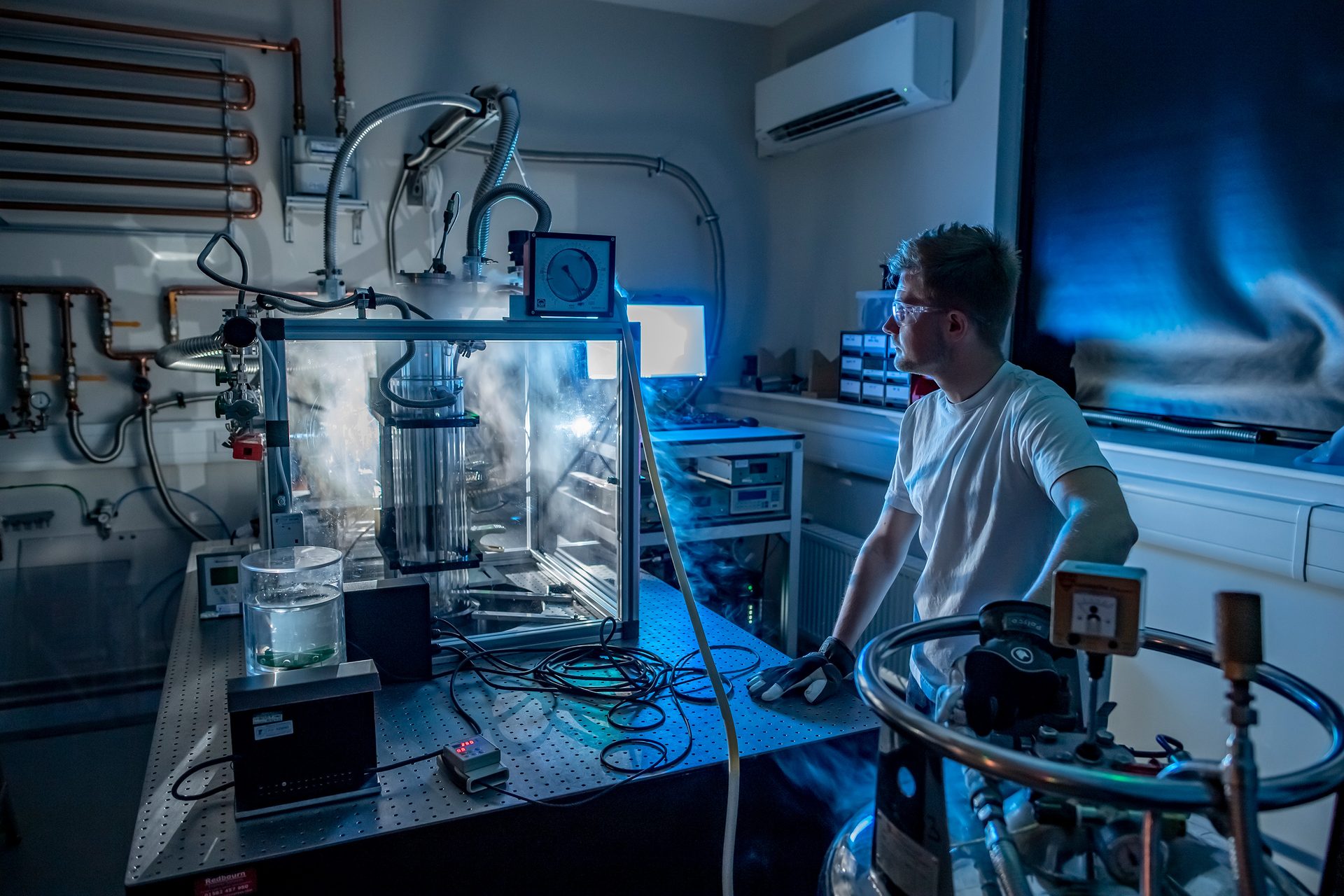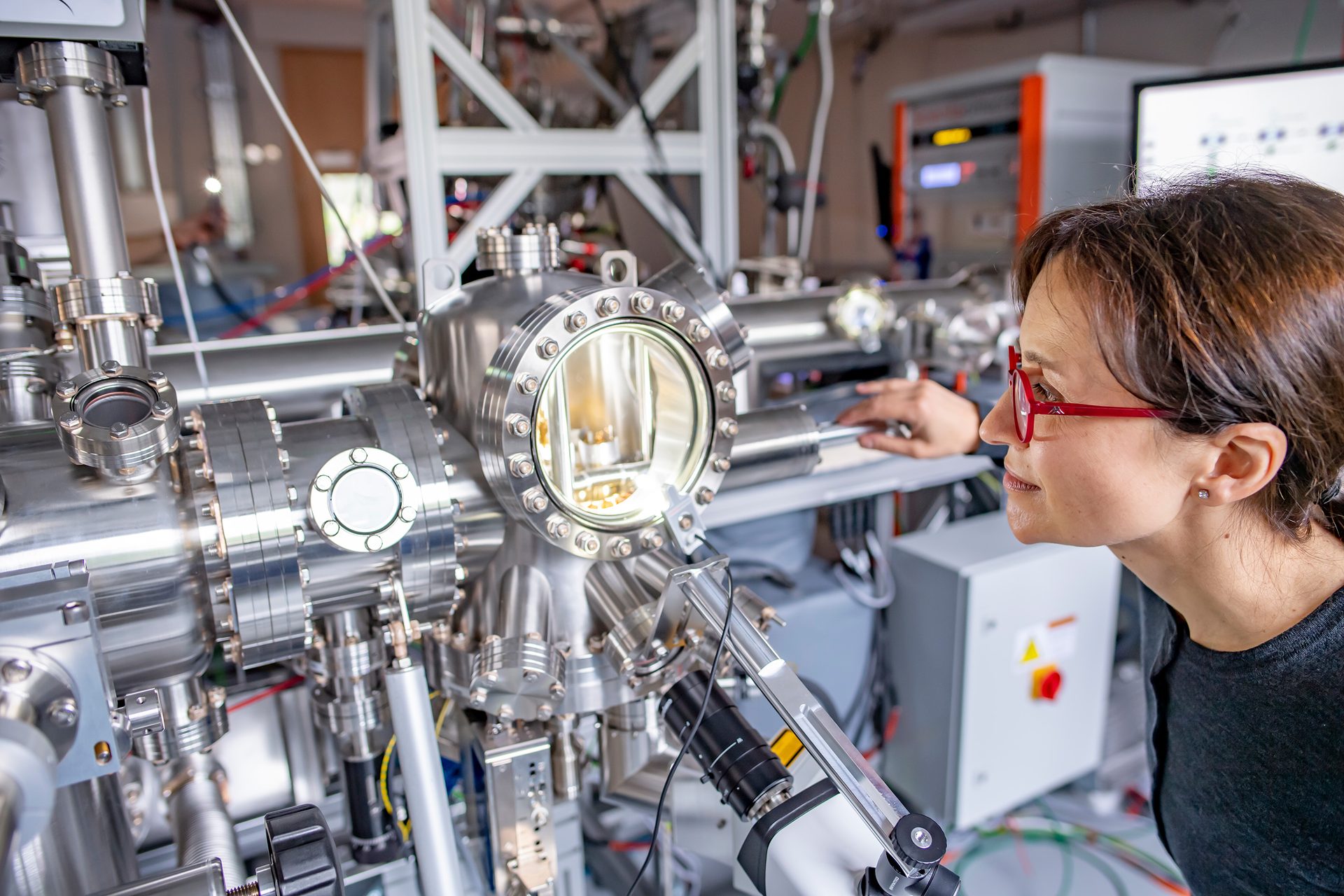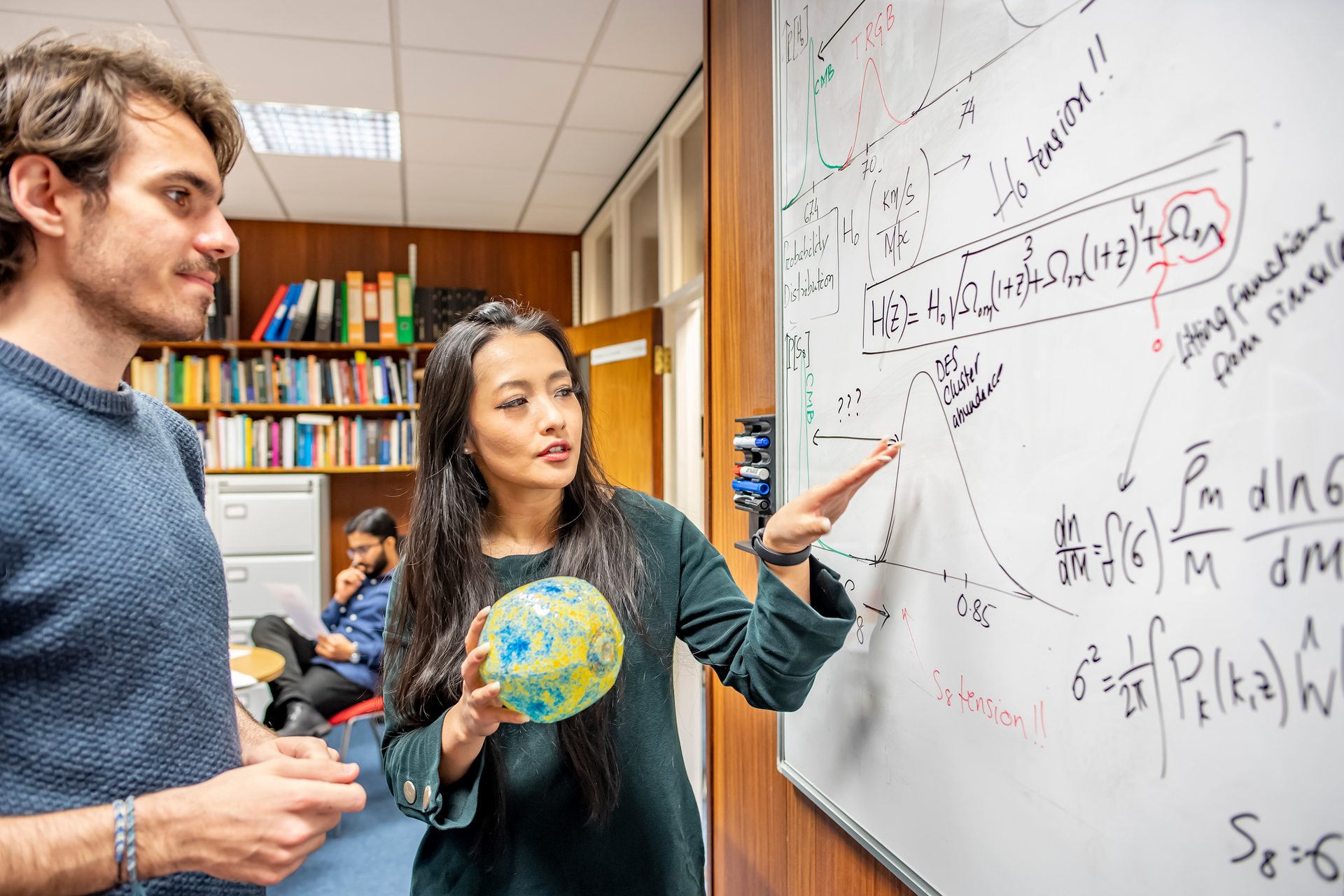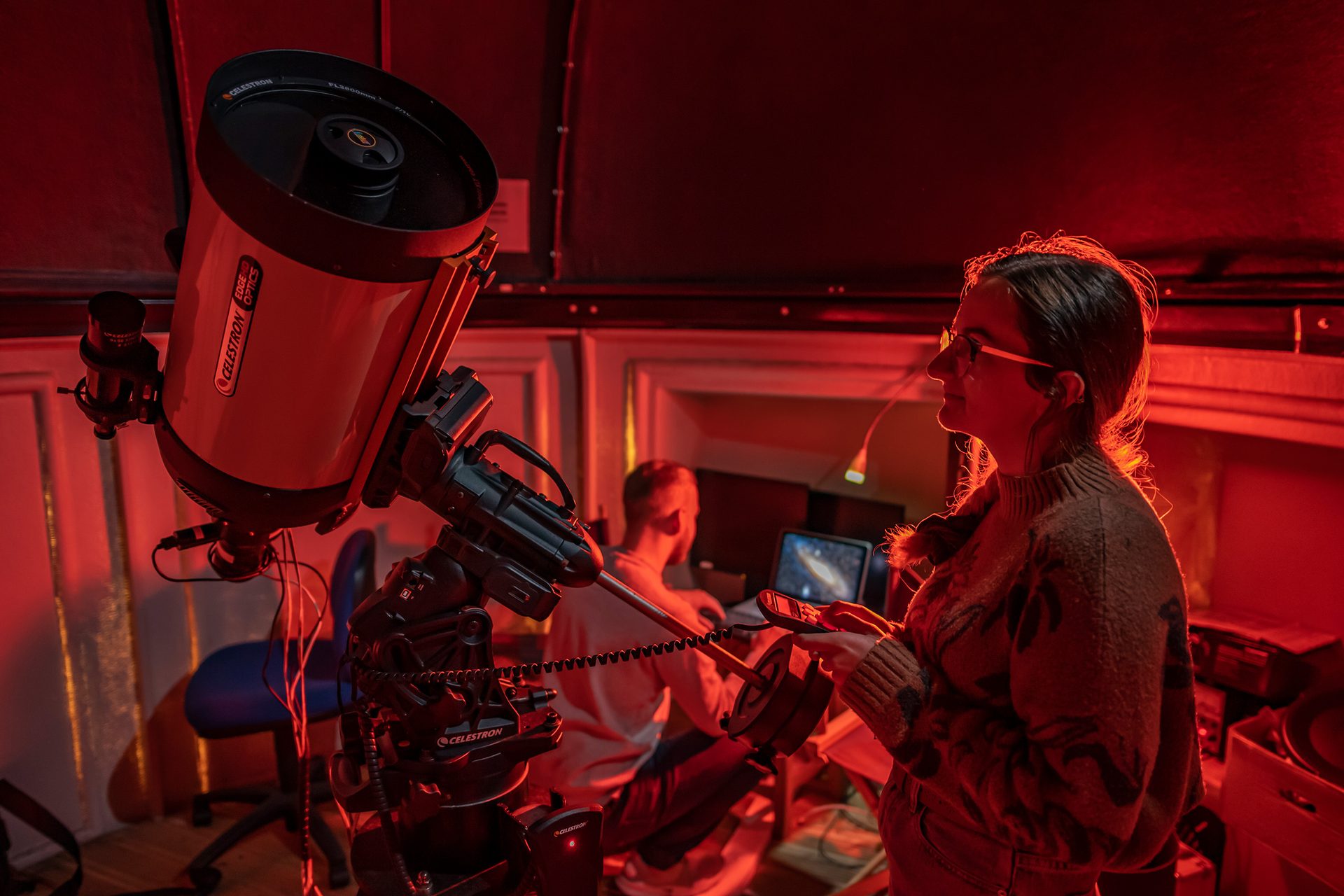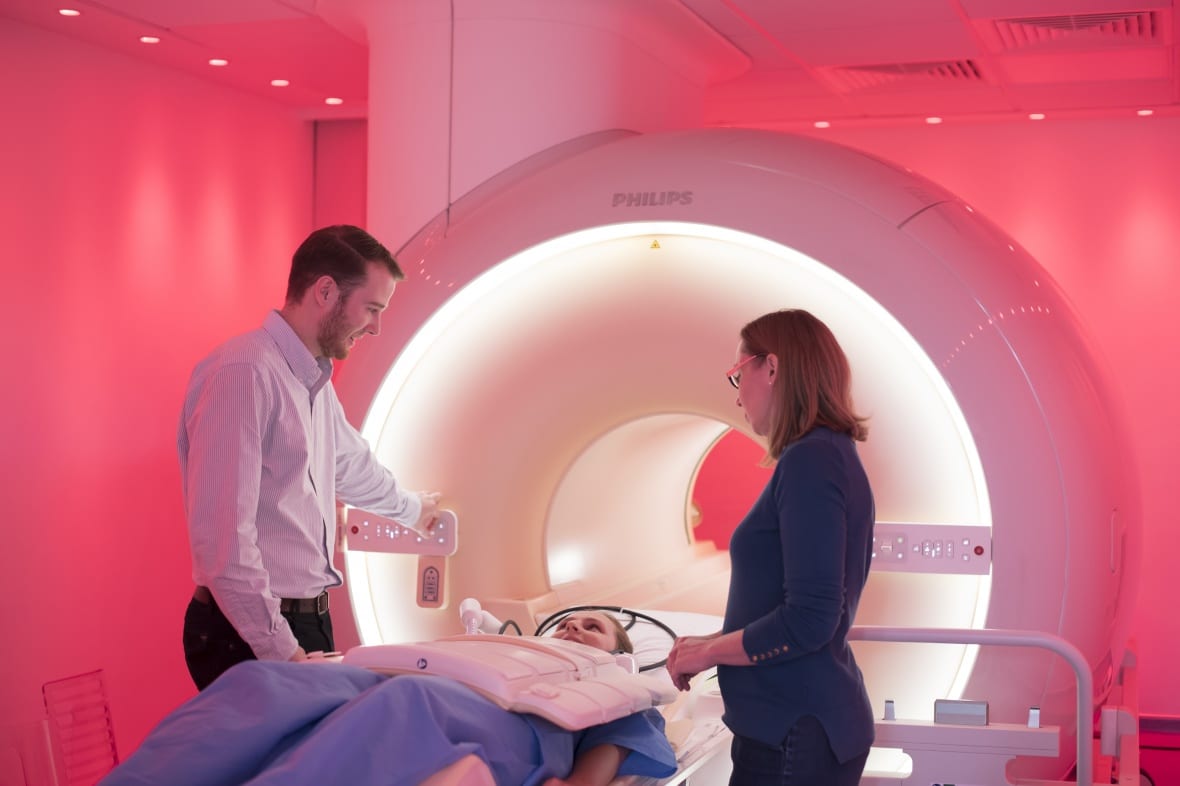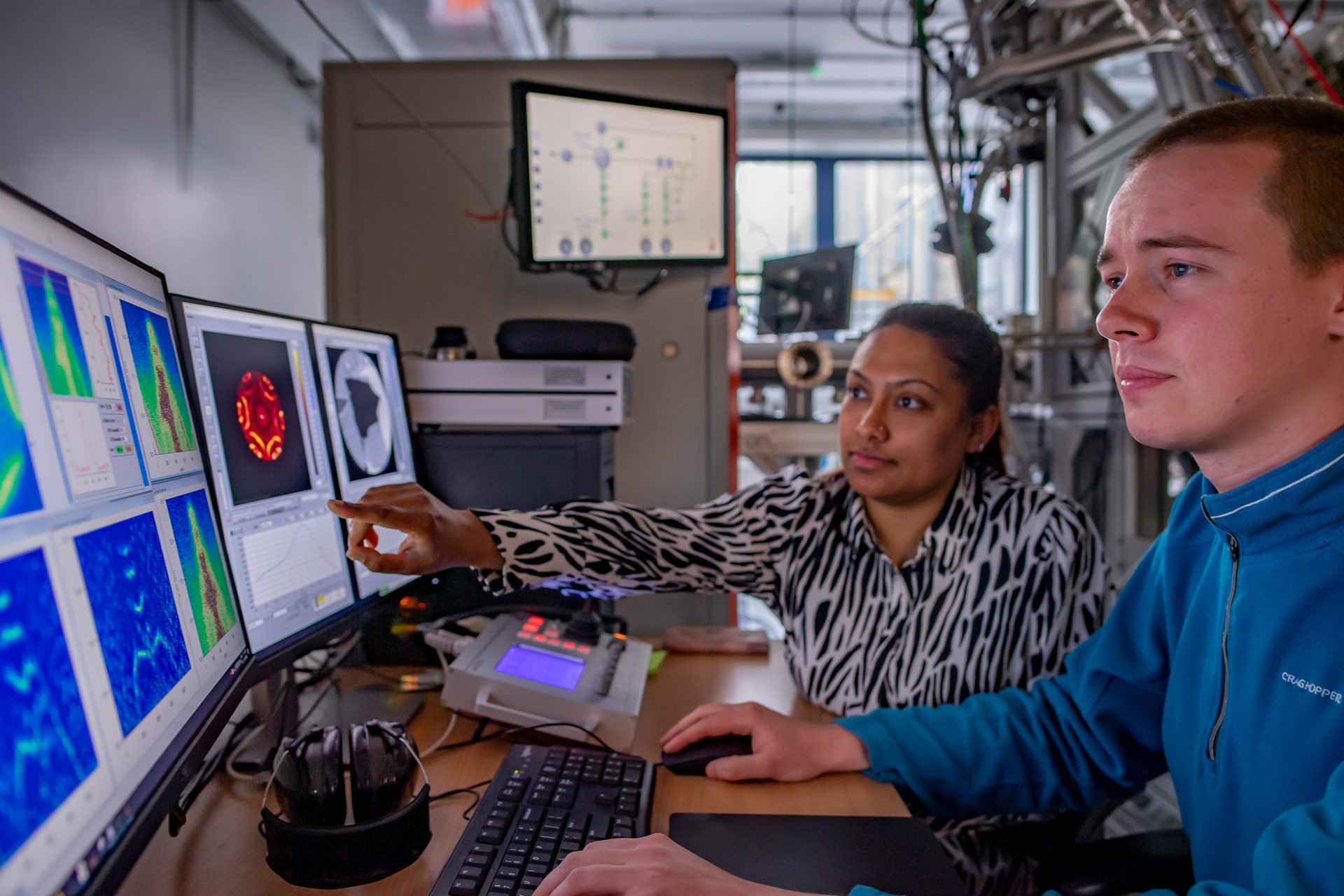Researchers at the University of Nottingham’s School of Physics and Astronomy know no bounds when it comes to advancing the frontiers of physics. Here, students develop vital skills by working with professors on projects at the cutting-edge of theory and experiment. Together, they tackle big questions ranging from understanding the smallest fundamental particles all the way up to the large-scale structure of the universe.
Like the curiosity of the school’s researchers, there is no limit to your education here. “A few years ago, I ran a 4th year project for two students looking at how experiments using cold atoms can be used to constrain theories of dark energy," Professor Clare Burrage says. "We were able to write those new constraints up as a research paper, and one of the students went on to do a successful PhD with me!"

The school is no stranger to modern success. For example, the Sir Peter Mansfield Medical Imaging Centre, home to the Medical Physics research group, is named after the late Professor Sir Peter Mansfield. His work at Nottingham led to the the development of Magnetic Resonance Imaging (MRI) and the award of the Nobel Prize in 2023. Twenty years later, the Centre is soon to be home to the UK’s most powerful MRI scanner.
You too can follow in the footsteps of Professor Mansfield by joining one of the programmes offered by a school ranked second only to the Cambridge over the last three REF assessments for research quality.
The Research Excellence Framework (REF) reviews the quality, impact, and scope of research at UK universities. With 98% of the university's research classified as "world-leading" (4*) or "internationally excellent" (3*), students benefit from the academic excellence of the research in the school. This includes the opportunity to apply for paid summer internships to work directly with researchers on key projects.
The school offers six main undergraduate courses. Each is offered as a Bachelor of Science (BSc) or an integrated undergraduate master’s qualification that leads to a Master of Science (MSci) with an additional year of study. The final year of the MSci is unique as it swaps exams for student-centred learning and ongoing assessment. Focusing on fewer but more specialised areas, you’ll complete a year-long research project as well as group work, projects, delivering seminars and independent learning. Paid internship opportunities are open to all students as well.
Programmes that develop your expertise and skills
"The lack of exams [in the MSci year] and more project-based assessment means that students have more freedom to explore aspects of topics that interest them and/or will be relevant for their future careers," Professor Burrage says. "For example, students who are keen to develop their coding skills can find aspects of the project that allow them to do that."
Whichever programme you choose, you’ll start with a common first year that lets you switch courses up until the end of the first year. And up until the second year, you can change between the BSc and MSci degrees.
"Sometimes it’s hard for students at the start of their studies to know what they want to be doing in three or four years time," Professor Burrage says. "The flexibility we provide allows students to decide, for example, that they are really interested in the physics they are studying and want to continue that for another year, or that they are ready to start their career now and don’t want to continue studying for another year."


Our Programs
Discover more about The University of Nottingham, School of Physics and Astronomy

Copyright © 2024 Study International, official representative of The University of Nottingham, School of Physics and Astronomy


